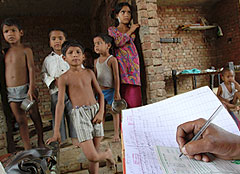Example Japanese encephalitis campaign

In 2006, inaccurate media reports about the Japanese encephalitis (JE) vaccine used in India's mass vaccination campaigns nearly derailed an immunization programme that aimed to protect millions of children and adolescents.
The Government of India responded promptly to these unfounded reports. It convened an independent expert committee to investigate AEFIs and address any risks associated with vaccine administration. The expert committee conducted an extensive investigation of 504 adverse events reported through the AEFI system (including 22 deaths) and 29 additional cases identified through active case-finding. It found no link between the vaccine and serious illnesses or deaths. The primary recommendation of the committee's final report states: "No direct causality has been established between the reported illnesses and the JE vaccine. Therefore, no stricture on the further use of the vaccine is warranted."37
The expert committee's findings were presented at key global health events, including the Global Vaccine Research Forum and a meeting of WHO's Global Advisory Committee on Vaccine Safety.38
Understanding background mortality in the context of deaths temporally associated with vaccination is key when responding to AEFI reports: The 22 deaths among children of the required age vaccinated during the campaign was equivalent to a fatality rate of 0.24 deaths per 100,000. The background mortality in the same age group is actually much greater at 8.6 per 100,000. The 22 deaths reported therefore do not reflect an excess mortality caused by the vaccine.
